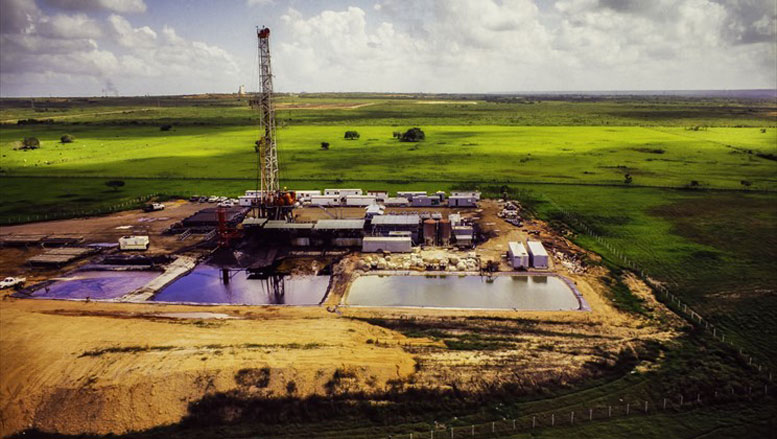
Fracking and STIs. Photo credit: iStock
Researchers at the Yale School of Public Health have discovered that the rates of two major sexually transmitted infections (STIs), gonorrhea and chlamydia, are 21% and 19% higher, respectively, in Ohio counties with high shale gas activity (“fracking”), compared to counties without any fracking. Rates of a third STI, syphilis, were not elevated.
Shale gas extraction is associated with large influxes of specialized, trained workers into rural areas to meet the labor demands of the drilling rigs, and commonly involves the formation of “work camps” composed of relatively young men. The influx of workers in these situations is thought to increase STI risk because male workers typically live and socialize in communities with masculinized social norms, do not bring families and thus have opportunities to seek other sex partners, and may have few emotional ties to the local community.
“Beyond some of the more familiar concerns about water quality and earthquakes, this report of increased rates of two major sexually transmitted infections suggests another potential health impact in communities hosting the emerging shale gas industry,” said lead author Nicole Deziel, Ph.D., assistant professor at the Yale School of Public Health.
The study examined new well permits and reported STI cases, obtained from publicly available datasets, in all 88 Ohio counties from 2000 to 2016; this long follow-up period covered both pre- and post-fracking periods to account for any pre-existing trends in STI rates. The researchers accounted for several other factors, such as population density and age, using variables obtained from the US Census.
“Similar patterns have been observed for other migratory labor movements, but the idea that this could be occurring for the current situation of increased hydraulic fracturing in the United States is only beginning to emerge,” said senior author Linda Niccolai, Ph.D., Professor at the Yale School of Public Health. “These findings point to the potential importance of new shale gas extraction activities as a social determinant of health, one that changes the collective fabric of communities in a way that increases risk for STI transmission.”
The fracking industry has rapidly expanded over the past decade, particularly in Pennsylvania, Ohio, Colorado, Texas and North Dakota. In contrast, other states, such as New York and Maryland, have banned the practice.
“The link between fracking and STIs needs to be studied in other regions before it could be considered conclusive; however, our results may be useful in informing local public health officials and policy makers, as there are effective community-level interventions for reducing transmission of STIs,” said Deziel. “Further, this study adds to the growing body of evidence of other possible health problems in populations living near fracking sites, such as asthma symptoms or premature births.”
Other Yale School of Public Health authors on the study include Zoe Humeau, Elise Elliott, and Joshua Warren.
Publication: Nicole C. Deziel, et al., “Shale gas activity and increased rates of sexually transmitted infections in Ohio, 2000–2016,” PLOS One, 2018
By ELISABETH REITMAN, YALE UNIVERSITY.
Source: http://publichealth.yale.edu/article.aspx?id=17016
Not indicating that the content you copy/paste is not your original work could be seen as plagiarism.
Some tips to share content and add value:
Repeated plagiarized posts are considered spam. Spam is discouraged by the community, and may result in action from the cheetah bot.
Creative Commons: If you are posting content under a Creative Commons license, please attribute and link according to the specific license. If you are posting content under CC0 or Public Domain please consider noting that at the end of your post.
If you are actually the original author, please do reply to let us know!
Thank You!
Downvoting a post can decrease pending rewards and make it less visible. Common reasons:
Submit
Hi! I am a robot. I just upvoted you! I found similar content that readers might be interested in:
http://publichealth.yale.edu/article.aspx?id=17016
Downvoting a post can decrease pending rewards and make it less visible. Common reasons:
Submit
Congratulations @ahmedcation! You have completed some achievement on Steemit and have been rewarded with new badge(s) :
Click on any badge to view your own Board of Honor on SteemitBoard.
For more information about SteemitBoard, click here
If you no longer want to receive notifications, reply to this comment with the word
STOPDo not miss the last announcement from @steemitboard!
Downvoting a post can decrease pending rewards and make it less visible. Common reasons:
Submit